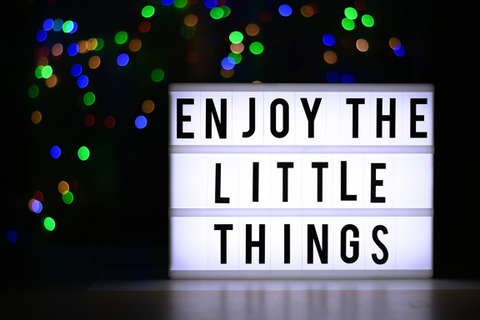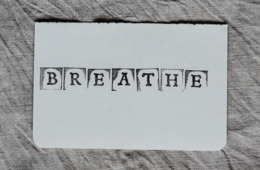
How Gratitude Shapes Your Mindset
Gratitude teaches your mind to shift attention away from constant stress. When you begin to recognize good moments your brain creates new thought patterns. These patterns gradually become easier to access which means your reactions become calmer and more balanced. This is not the same as ignoring problems. It simply gives you another perspective so challenges feel less heavy.
Many experts believe gratitude can strengthen emotional resilience. When you feel grateful your brain becomes less likely to spiral into negative assumptions. Instead you begin to develop more grounded thinking that makes everyday stress feel manageable.
The Science Behind Gratitude and Mood
The brain responds to gratitude in a measurable way. Recent studies suggest that gratitude activates regions connected to emotional regulation. This activation makes it easier to create feelings of stability. For example when you write down three things you appreciate your brain produces chemicals that support contentment. This is why gratitude practices can create a noticeable lift in your mood even on a difficult day.
Gratitude also helps regulate the nervous system. When you feel calmer physically your thoughts become clearer and decision making improves. This creates a cycle where gratitude strengthens your mood which then supports healthier responses in daily life.
Daily Gratitude Habits That Actually Work
Small habits are more powerful than grand gestures. A simple habit might be writing one line each morning about something you appreciate. You can also practice gratitude silently during daily tasks like drinking your first cup of tea or taking a short walk. These moments help your mind shift into a softer and more present state.
Social gratitude can be even more uplifting. Telling someone you appreciate their effort or kindness strengthens your bond and increases your own sense of emotional connection. Over time gratitude becomes automatic which means you start noticing positive details without searching for them.
If you struggle with consistency you can set reminders or connect gratitude to a routine you already do such as brushing your teeth or preparing your lunch.
How Gratitude Strengthens Relationships
Gratitude improves emotional connection by encouraging more thoughtful communication. When you express appreciation, relationships become warmer and more stable. People feel valued which increases trust. This makes it easier to have meaningful conversations and resolve conflicts calmly.
Gratitude also helps you become more aware of the small positive actions others do. You might notice the way someone supports you or the effort they put into shared responsibilities. This awareness brings more harmony to friendships, partnerships and work relationships.
Building a Sustainable Gratitude Practice
Consistency matters more than intensity. A sustainable gratitude practice grows through repetition. You can use a simple notebook or a digital note on your phone. The key is to make gratitude feel natural instead of forcing it. If you miss a day you can simply continue the next day without judgment. Over time your mind adjusts and begins to find gratitude more easily.
You can also refine your practice by choosing themes. For example you might focus on relationships one week and personal growth the next. This keeps your gratitude practice fresh and meaningful.
Common Myths About Gratitude
A common misunderstanding is that gratitude requires you to pretend everything is perfect. Real gratitude is honest. It allows you to acknowledge difficulties while still recognizing moments that carry value. Another myth suggests gratitude is only helpful when life is going smoothly. In reality gratitude can be even more essential during stressful periods because it gives your mind something steady to focus on.
Some people worry that gratitude makes them passive. This is also a myth. Gratitude does not stop you from wanting improvement. It simply helps you approach goals with a more balanced emotional foundation.
What Happens When You Ignore Gratitude
Without gratitude it becomes easier to get stuck in negative thinking patterns. You might feel more irritated by small inconveniences or more overwhelmed by challenges that normally feel manageable. This can affect your energy level and motivation. Over time you may struggle to recognize your progress which reduces confidence and leads to emotional fatigue.
When you skip gratitude entirely your perception of life can become unbalanced. Stress feels larger. Positive moments feel smaller. Even neutral situations can feel heavy because your mind has not practiced shifting toward appreciation.
Frequently Asked Questions
1.How long does it take to see benefits from a gratitude practice?
Most people notice small improvements within a few days. Deeper emotional changes appear with consistent practice over weeks or months.
2.Can gratitude help with anxiety?
Yes. Gratitude guides your attention toward supportive thoughts. This can reduce some symptoms of anxiety and create a calmer mental environment.
3.What if gratitude feels forced at first?
That is completely normal. Your mind simply needs time to adjust. Even small honest moments of gratitude can create gradual improvement.
4.Is there such a thing as too much gratitude?
Not really. The key is to stay honest. Gratitude should feel genuine rather than exaggerated.
Many people look for big dramatic changes when they want to feel happier, calmer or more in control of their thoughts. Yet one of the most effective tools for building a stronger and more positive mindset is something incredibly simple. The power of gratitude for a stronger and more positive mindset can reshape the way you experience your daily life. Gratitude is more than a polite thank you. It is a mental shift that teaches you to notice what is going well even when life feels busy or uncertain.
This shift does not happen all at once. It grows through small consistent choices that slowly retrain your mind. When you begin to focus on appreciation you create space for more calmness, more balance and more emotional clarity. Many people find that gratitude helps reduce stress and brings a sense of softness to their thinking because it highlights areas of life that feel meaningful.
If you have ever felt stuck in negative thinking patterns or overwhelmed by responsibilities then understanding how gratitude works can be a turning point. This introduction sets the stage for a deeper look at what gratitude does to your mood, why it is so effective and how you can build simple habits that make a noticeable difference. As you continue reading you will see how gratitude can support long term emotional growth that feels natural and sustainable.
How Gratitude Shapes Your Mindset
Gratitude teaches your mind to shift attention away from constant stress. When you begin to recognize good moments your brain creates new thought patterns. These patterns gradually become easier to access which means your reactions become calmer and more balanced. This is not the same as ignoring problems. It simply gives you another perspective so challenges feel less heavy.
Many experts believe gratitude can strengthen emotional resilience. When you feel grateful your brain becomes less likely to spiral into negative assumptions. Instead you begin to develop more grounded thinking that makes everyday stress feel manageable.
The Science Behind Gratitude and Mood
The brain responds to gratitude in a measurable way. Recent studies suggest that gratitude activates regions connected to emotional regulation. This activation makes it easier to create feelings of stability. For example when you write down three things you appreciate your brain produces chemicals that support contentment. This is why gratitude practices can create a noticeable lift in your mood even on a difficult day.
Gratitude also helps regulate the nervous system. When you feel calmer physically your thoughts become clearer and decision making improves. This creates a cycle where gratitude strengthens your mood which then supports healthier responses in daily life.
Daily Gratitude Habits That Actually Work
Small habits are more powerful than grand gestures. A simple habit might be writing one line each morning about something you appreciate. You can also practice gratitude silently during daily tasks like drinking your first cup of tea or taking a short walk. These moments help your mind shift into a softer and more present state.
Social gratitude can be even more uplifting. Telling someone you appreciate their effort or kindness strengthens your bond and increases your own sense of emotional connection. Over time gratitude becomes automatic which means you start noticing positive details without searching for them.
If you struggle with consistency you can set reminders or connect gratitude to a routine you already do such as brushing your teeth or preparing your lunch.
How Gratitude Strengthens Relationships
Gratitude improves emotional connection by encouraging more thoughtful communication. When you express appreciation, relationships become warmer and more stable. People feel valued which increases trust. This makes it easier to have meaningful conversations and resolve conflicts calmly.
Gratitude also helps you become more aware of the small positive actions others do. You might notice the way someone supports you or the effort they put into shared responsibilities. This awareness brings more harmony to friendships, partnerships and work relationships.
Building a Sustainable Gratitude Practice
Consistency matters more than intensity. A sustainable gratitude practice grows through repetition. You can use a simple notebook or a digital note on your phone. The key is to make gratitude feel natural instead of forcing it. If you miss a day you can simply continue the next day without judgment. Over time your mind adjusts and begins to find gratitude more easily.
You can also refine your practice by choosing themes. For example you might focus on relationships one week and personal growth the next. This keeps your gratitude practice fresh and meaningful.
Common Myths About Gratitude
A common misunderstanding is that gratitude requires you to pretend everything is perfect. Real gratitude is honest. It allows you to acknowledge difficulties while still recognizing moments that carry value. Another myth suggests gratitude is only helpful when life is going smoothly. In reality gratitude can be even more essential during stressful periods because it gives your mind something steady to focus on.
Some people worry that gratitude makes them passive. This is also a myth. Gratitude does not stop you from wanting improvement. It simply helps you approach goals with a more balanced emotional foundation.
What Happens When You Ignore Gratitude
Without gratitude it becomes easier to get stuck in negative thinking patterns. You might feel more irritated by small inconveniences or more overwhelmed by challenges that normally feel manageable. This can affect your energy level and motivation. Over time you may struggle to recognize your progress which reduces confidence and leads to emotional fatigue.
When you skip gratitude entirely your perception of life can become unbalanced. Stress feels larger. Positive moments feel smaller. Even neutral situations can feel heavy because your mind has not practiced shifting toward appreciation.
Frequently Asked Questions
1.How long does it take to see benefits from a gratitude practice?
Most people notice small improvements within a few days. Deeper emotional changes appear with consistent practice over weeks or months.
2.Can gratitude help with anxiety?
Yes. Gratitude guides your attention toward supportive thoughts. This can reduce some symptoms of anxiety and create a calmer mental environment.
3.What if gratitude feels forced at first?
That is completely normal. Your mind simply needs time to adjust. Even small honest moments of gratitude can create gradual improvement.
4.Is there such a thing as too much gratitude?
Not really. The key is to stay honest. Gratitude should feel genuine rather than exaggerated.

Conclusion
Gratitude is a gentle yet powerful way to build a stronger and more positive mindset. When you understand the power of gratitude for a stronger and more positive mindset it becomes clear that appreciation is far more than a pleasant feeling. It is a mental skill that shapes the way you experience your day and the way you handle challenges. Gratitude creates emotional balance by reminding you that even during difficult times meaningful moments still exist.
As you continue to practice gratitude you may notice increased patience, clearer thoughts and a more grounded approach to everyday life. Your relationships may feel warmer and your stress levels may feel easier to manage. Gratitude does not require perfect circumstances. It simply requires your willingness to notice the good that is already present. With time this habit becomes a steady source of emotional strength that supports long term wellbeing.
If you continue building your gratitude routine at your own pace you will create a mindset that feels more stable, hopeful and connected to what truly matters.
Related posts




